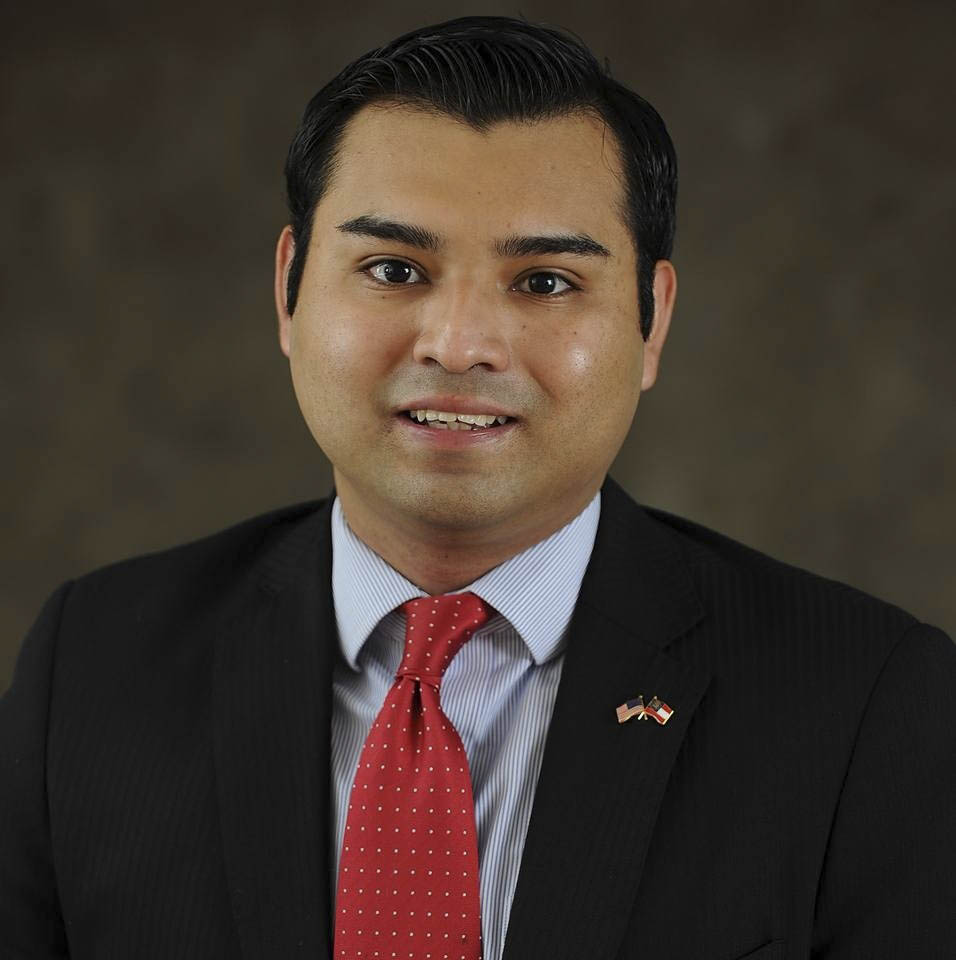More than 8,300 young adults in Tennessee brought to the United States illegally as children could be affected by President Trump's Tuesday decision to end the Obama-era Deferred Action for Childhood Arrivals program.
"I'm pretty nervous," said Bella Cruz, one of more than 800,000 DACA participants nationwide. "I'm a student right now, but if I was an employee and my permit expired, I wouldn't have a job."
Cruz was born in Mexico, but her family moved to Dalton, Ga., when she was 8 years old. She is starting her first year of law school at Loyola University New Orleans.
"It's really difficult for me to grasp the idea of making it through undergrad and then coming to law school and then suddenly being hit with the news that I might be deported," she said. "My biggest fear is what is to come in the future. DACA allowed me to believe that even after law school, I would be able to participate in my career. With DACA gone, that's no longer a possibility for me."
Cruz's fear for the unknown is mirrored by many others in her position, as well as organizations advocating for immigrants' rights.
"We're going to be working with folks in identifying how they're impacted and making sure they have the resources they need," said Stephanie Teatro, co-executive director of the Tennessee Immigrant and Refugee Rights Coalition.
What they said
"Congress is the one that needs to decide how the DACA program or how the immigration programs should work, and it's my hope that they come up with a program that does three things: that balances the compassion and the practical reality of people who are here ... makes certain that we respect the rule of law that this country is based on."- Tennessee Gov. Bill Haslam"Just as President Nixon went to China, President Trump uniquely can lead a revision of our immigration laws that secures our borders, improves our system of legal immigration and solves problems such as the 800,000 children who grew up here, but were brought here illegally. I voted for such a law in 2013 and am willing to work with the president to do that again."- U.S. Sen. Lamar Alexander, R-Tenn."The president is right to want this issue to be resolved legislatively," said Corker. "Hopefully, while addressing it, we also will deal with a myriad of other issues that need to be corrected with our broken immigration system, including enhancing enforcement and security measures."- U.S. Sen. Bob Corker, R-Tenn."Any solution to illegal immigration must include border security and domestic law enforcement, and Congress must write the law. For that reason, federal courts struck down the former president's unconstitutional orders, and I support Kate's Law, defunding sanctuary cities, a border wall, and a legal, merit-based immigration system that works better for American citizens, workers and taxpayers. Our focus should be Americans out of work, underpaid, or concerned for their safety, because of unfettered illegal immigration and related border crime."- U.S. Rep. Scott DesJarlais, R-Tenn."Moving forward, it is imperative that any immigration proposals considered by Congress protect the interests of working Americans, including immigrants. We cannot repeat the mistakes of the past with a comprehensive immigration bill that does not work. The RAISE Act's changes to our legal immigration system should be part of the solution. I will continue working with Senator Cotton and my colleagues to advance this merit-based system that is pro-worker, pro-growth, and proven to work."- U.S. Sen. David Perdue, R-Ga."While I am sympathetic to the intent of the DACA program and the situation of those affected by it, the fact remains that the program was created through an unconstitutional reach of executive power under the Obama Administration. The 6-month delay will provide Congress with the proper time necessary to craft legislation to address the immigration issues facing our nation."- U.S. Rep. Chuck Flesichmann, R-Tenn."You were brought here through no fault of your own. It's not your fault you didn't have paperwork when you were 2 or 3 years old. But you've done everything right. You're working hard in school, you have bright futures, and we want your future to be here in the United States of America"- U.S. Rep. Jim Cooper, D-Tenn., to DACA participants
The coalition will be hosting information sessions and organizing calls for action to address lawmakers to pass the Dream Act of 2017, a bipartisan bill that allows undocumented immigrants to apply for U.S. citizenship if they meet certain criteria.
One of the information sessions will be held in Chattanooga on Thursday at 6 p.m. at Howard School of Academics and Technology's cafeteria.
"[We're] really turning that fear and anxiety people are feeling today into action that will move Congress to pass something like the Dream Act," she said.
Jaime Rangel, another Mexican-born DACA recipient from Dalton, is already focusing on taking action. He is an intern with FWD.us, a bipartisan organization in Atlanta, dedicated to promoting immigration and criminal justice reform. As part of his internship, he reaches out to state leaders and business leaders to discuss immigration reform.
"I believe it's up to Congress now to step up and come up with a solution to protect 800,000 lives who have contributed to this country, who are teachers, who are nurses, who are doctors, who work in different fields and who contribute to the economy," Rangel said. "It's time to step up."
He said he will continue working with state lawmakers to promote the Dream Act and try to find a legislative solution.
But Doug Sullivan, a retired Immigration and Customs Enforcement supervisor for the Dalton office, said he thinks that is the way it should have been from the start and it's long overdue.
"Laws aren't passed by presidents," he said. "Laws are passed by Congress. The current president said, 'We're going to end this thing because it's unconstitutional, and now I'm giving Congress six months to get it right.' So he threw it right where it should have been to start with - with the Congress of the United States."
Sullivan worked with ICE for more than 20 years. He said he "sincerely doubts" DACA beneficiaries will become a target for ICE agents, a concern that has been widely brought up due to DACA recipients and applicants identifying themselves as undocumented immigrants and, inadvertently, their families, as well.
"For the most part, agents are encountering people who call attention to themselves by violating other laws," Sullivan said. "Students have had a hard time because they didn't have documentary requirements. ... DACA gave them the ability to go to school without fear of being caught."
For DACA students attending the University of Tennessee at Chattanooga or Dalton State College, not much will change.
Spokespeople for both institutions said their policies will not change, as they do not require undocumented students to self-report their legal status. However, those students do have to pay out-of-state tuition and are not eligible for federal financial aid.
"We will continue to comply with the federal and state laws" to protect the identities of students, said Tiffany Carpenter, associate vice president for communications and marketing at the University of Tennessee. That policy also applies to UTC.
Carpenter clarified that the universities will not disclose to the government which students are undocumented unless served with a subpoena.
At Dalton State, Quincy Jenkins, director of Latino outreach, said the college never turned away students based on residency.
"DACA just kept them from the threat of deportation from the federal government," he said. "That's why our policy hasn't changed on our end."
A request for comment from Chattanooga State Community College was not returned before press time.
Though school policies aren't changing - at least for now - and it's still not fully clear how many will be affected, one thing is for sure: It will hurt hundreds of thousands of people, said Marty Lester, an immigration attorney in Chattanooga.
"[It's] people whose only crime, as it were, was being brought to this country as children and who have met all of the hurdles that were put there in terms of going to school and staying out of trouble," he said. "These are kids who have grown up in our country, gone to our schools, stayed out of trouble and passed background checks."
D.A. King, founder and president of the Dustin Inman Society, thinks otherwise.
The society is named after a 16-year-old who was killed in a 2000 car crash blamed on an undocumented immigrant, and it opposes any kind of pathway to citizenship for DACA participants.
"Unequivocally no," King said. "No person who enters this country illegally should ever be allowed to become a U.S. citizen unless they go back and start over."
Any other approach, he said, "is going to encourage other people to come into the country illegally or overstay a visa, bring their children along and eventually claim victimhood."
"I am in favor of a one-time deal, if it is possible, to take away the illegal status of these DACA children so they can stay and work, though they cannot become citizens."
But for people like Cruz, the young law student, once her DACA permit expires she will be eligible for deportation, and her only option for permanent citizenship is through marriage. That is not something she has in her plans for a long time, she said.
"I'm only 25," Cruz said. "I grew up here, so I have the mentality of any other American. I want to live my 20s freely before I commit to having a family and having kids. It's a huge imposition to think that's the only way that I can be here."
She added that marrying for the sole purpose of acquiring citizenship is not an option. "It's fraud, and I would be liable for that," she said.
If she does have to go back to Mexico, she faces another set of difficulties, she said.
"I speak Spanish, but not at the level where I could hold a professional career," Cruz said. "I just don't have that efficiency anymore."
Not being able to work, even with her level of education, would hold her back economically, she said.
"But the culture shock is even more profound because I grew up here," she said. "Even my mom is often shocked by [how I act]. So going back to my country is so difficult on so many levels because I was 8 when I first came to the U.S."
Contact staff writer Rosana Hughes at rhughes@timesfreepress.com or 423-757-6327. Follow her on Twitter@HughesRosana.

